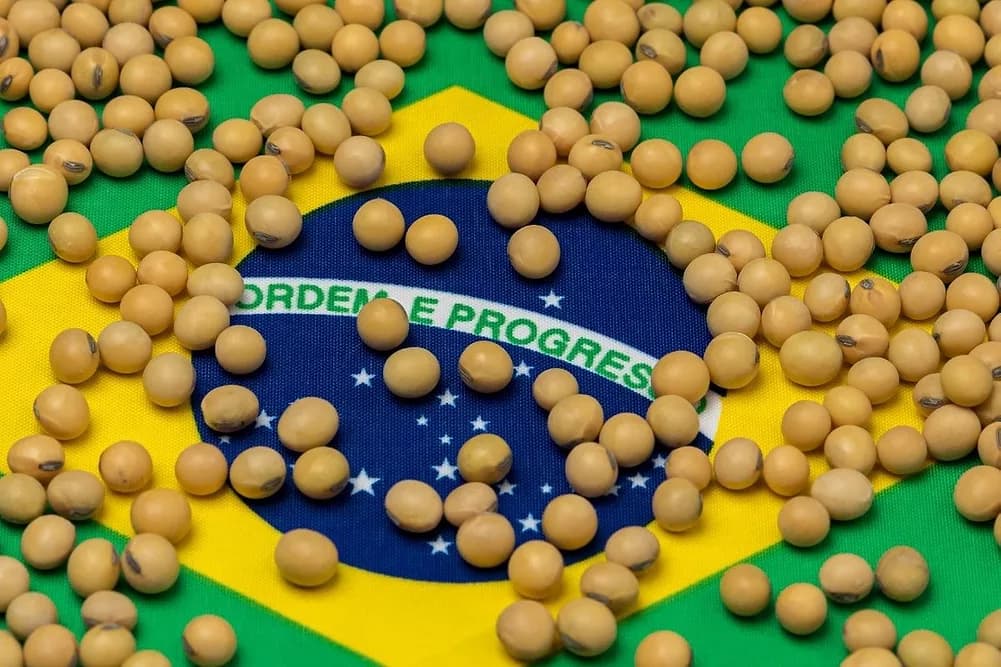Brazilian soybean exports have reached a historic record in the latest cycle, consolidating the country as the world’s largest supplier of the grain and reinforcing its strategic role in international agricultural trade. According to data released by the Secretariat of Foreign Trade, shipments surpassed all forecasts and placed the sector in a leading position against its main competitors, such as the United States and Argentina. The historic milestone reflects both strong global demand, driven by China, and Brazil’s productive capacity, which in recent years has significantly expanded its cultivated area and investments in agricultural technology.

The exported volume not only surprised analysts and the government itself but also generated an immediate impact on Brazil’s trade balance. With international soybean prices at elevated levels, revenues from foreign sales grew at a rapid pace, adding billions of dollars to the country’s reserves. This performance helped improve the trade surplus, offering relief at a time when other areas of the economy are facing difficulties caused by global slowdown and financial market volatility.
China, the world’s leading soybean buyer, accounted for more than 60% of the total acquired from Brazil. The Asian giant depends on soybeans for the production of feed for its massive pork and poultry industry, and it has sought to diversify suppliers in the face of trade tensions with the United States. This context directly benefited Brazilian producers, who managed to secure long-term agreements with Chinese importers and guarantee a steady flow of shipments. Demand also increased in other Asian countries and in emerging markets, reinforcing the strategic importance of the product in Brazil’s export agenda.
The Brazilian agricultural sector celebrated the result, highlighting the efforts of rural producers, the adoption of new technologies, and the logistical efficiency achieved in recent years. The expansion of the agricultural frontier, especially in the states of Mato Grosso, Goiás, and Bahia, has been crucial to sustaining increased production. In addition, investments in port infrastructure and transportation systems have reduced shipping times and costs, boosting the competitiveness of Brazilian soybeans against international rivals.
However, the record also brings challenges and controversy. Environmental organizations have once again warned about the impacts of soybean expansion in sensitive areas of the Amazon and the Cerrado. Agricultural expansion, often linked to illegal deforestation, raises international concerns and pressures the Brazilian government to strengthen control and sustainability mechanisms. European countries and multilateral organizations have conditioned trade agreements on stricter environmental commitments, placing Brazil in a delicate position: maintaining export growth without neglecting environmental preservation.
The government, for its part, highlighted that the export results are evidence of the country’s ability to compete globally. The Ministry of Agriculture stated that sustainable production incentive policies have been reinforced and that certification programs are being developed to guarantee international buyers traceability and the origin of exported soybeans. The official expectation is that Brazil will continue to be a reliable supplier, able to meet growing global demand without causing irreversible damage to its ecosystems.
In financial markets, the record in soybean exports had immediate repercussions. The Brazilian real showed signs of strengthening against the dollar in the days following the announcement, while shares of companies linked to the agricultural sector posted gains on the São Paulo Stock Exchange. Analysts noted that soybeans have consolidated as one of the pillars of the Brazilian economy, alongside iron ore and oil, and that their importance is likely to increase in a scenario of sustained global demand for animal protein and biofuels.
For rural producers, the moment is one of optimism but also caution. While international prices are high, market fluctuations and geopolitical tensions can quickly alter the outlook. Factors such as the trade war between the United States and China, the effects of climate change on harvests, and the evolution of global demand will remain key to defining the sector’s next steps. Even so, Brazilian farmers are confident that the combination of productivity, scale, and market access will sustain their hard-won leadership.
International trade experts emphasize that soybeans are not merely an agricultural product but a strategic asset for Brazil. Their weight in the trade balance is so significant that any variation in export volumes directly affects the country’s macroeconomic performance. In a context of global uncertainty, agribusiness resilience becomes one of the main guarantees of stability for the Brazilian economy. At the same time, this growing dependence raises questions about the need to diversify the export agenda and reduce risks associated with a single product.
The export record also fueled domestic debate about the distribution of benefits within the production chain. While large producers and exporters directly benefited from high prices and external demand, small farmers continue to struggle to access credit, technology, and markets. Sector organizations are calling for public policies to ensure inclusion and support for smaller producers so they too can take advantage of the opportunities generated by the soybean boom.
On the international stage, Brazil has consolidated itself as a decisive player in global food security. The ability to supply countries with massive populations and to sustain supply during times of crisis positions the country as an indispensable partner in agricultural trade. At the same time, this centrality heightens pressure for environmental and social commitments to accompany economic growth. The challenge in the coming years will be to balance the interests of production expansion with demands for sustainability and international responsibility.
In conclusion, Brazil’s record soybean exports mark a milestone in the country’s recent economic history and open a new chapter in the relationship between agribusiness, trade policy, and sustainability. The extraordinary performance strengthens external accounts, boosts market confidence, and consolidates Brazil as the world leader in the sector. Nevertheless, challenges related to the environment, inclusion of small producers, and international market volatility remain. The success achieved is reason for celebration but also for reflection on the paths the country must take to maintain its prominence without sacrificing its domestic and international commitments.